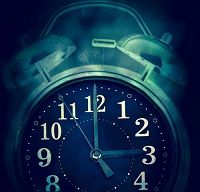Drug Holds Key to Nighttime Sleep in COPD
Researchers have found that tiotropium is associated with fewer night-time awakenings in patients with chronic obstructive pulmonary disease (COPD).

Researchers have found that tiotropium is associated with fewer night-time awakenings in patients with chronic obstructive pulmonary disease (COPD). The study, which was published in Respiratory Research on March 12, 2016, was conducted by Peter M. A. Calverley, MD, of the University of Liverpool, and colleagues.
The authors describe this study as being “a post hoc, exploratory, pooled analysis of twin, multicenter, double-blind, randomized, placebo-controlled, parallel-group trials.” They undertook it after several other, smaller studies found that patients who woke during the night due to COPD seemed to experience overall lower health status.
In order to investigate the effect of tiotropium, they recruited patients with stable severe-to-moderate COPD. They were randomized into a group that received tiotropium or a placebo for 13 weeks, preceded by a 2-week baseline period. The participants were asked to self-report awakenings during the night due to COPD symptoms, how often they used rescue inhalers, and to record morning and evening peak expiratory flow rates (PEFR). They were also asked to complete health related quality of life (HRQoL) and energy-fatigue questionnaires during the baseline period and during treatment.
There were 543 participants in the tiotropium group and 352 in the placebo group. The researchers report, “Over the 13-weeks’ treatment, tiotropium was associated with fewer night-time awakenings.” Additionally, “COPD-related night-time awakenings were associated with increased nocturnal rescue medication use and lower HRQoL ratings in both treatment arms. Following start of treatment, tiotropium decreased patients’ use of rescue medication compared with placebo, and morning and evening adjusted means for PEFR were higher for tiotropium compared with placebo.”
The researchers say that “the clinical impact of the findings is unknown, as the minimal clinically important difference for night-time awakening is not established and warrants further investigation” is one of several limitations. Another is that this study was conducted in 1997 before many background medications were commonly used. Even with those limitations and others the researchers believe that further studies should be undertaken in order to “favorably impact this potentially troublesome problem.”